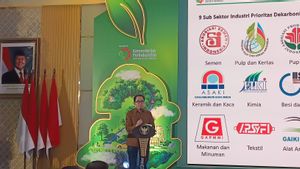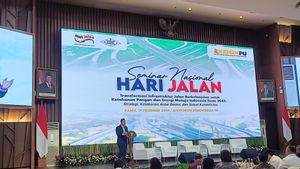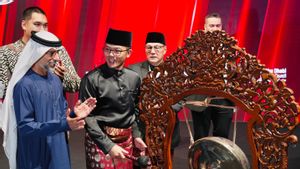JAKARTA - Leadership is a set of skills that are often associated with men. This is due to a historical bias in which masculine and assertive traits are generally affiliated with figures such as strong leaders, making them less favorable when displayed by women.
However, 2018 was a defining moment as we hit a record number of women elected to public office and the great interest in gender equality in Hollywood finally increased (American Association of University Women; AAUW). The question remains, as relative progress is seen, are we finally breaking the glass ceiling to redefine gender roles in leadership?
According to Fortune Magazine 2018 in collaboration with the Pew Research Center report, only 25 percent of the top 1,000 corporate C-suite positions are held by women. Dona Amelia, Co-Founder and Managing Director of EGN Indonesia, strongly believe that the gender gap in leadership exists because leadership is considered a complex case that should not be compared with other sectors, as being a leader depends not only on your personal qualities but also on externalities such as public perception and trust.
"If women are always seen as people who are not supposed to lead communities, businesses, and so on, the gender gap in leadership will remain large. This is why, even if there are opportunities for women to become leaders in the status quo, the challenges of being a leader will always be multiplied for them. women", said Dona, in a written statement, Monday, September 26.
However, despite the progress that has been made so far, the next challenge in the 21st century will no longer be about allowing or introducing women to participate in leadership, but also about reducing the gap between the participation of men and women in business and leadership.
According to AAUW data, although women have received adequate attention in public office and the entertainment industry, women are still under-represented in senior leadership roles in various industries. This is because the ladder to senior leadership may pose more challenges for women, these challenges include:
- The old stereotype where leadership is strongly associated with men and becomes less favorable when it comes to women;
- Fewer connections as men are believed to still surpass women in networking to learn about opportunities;
- Bias and discrimination as women are more likely to experience unpleasant circumstances (ie assault and harassment) in the workplace that present women with barriers or challenges to their personal and professional progress;
- Gender roles and lack of flexibility in which women are expected to be family caregivers while maintaining their office careers.
Building gender equality in leadership is not only the right thing to do but also a strategic thing to do, especially in the business world. A study by McKinsey and Co. argues that gender-diversified firms at their top executive level are 21 percent more likely to outperform profitability than firms that do not gender-diversify their top executives.
Furthermore, having more women in decision-making positions helps businesses generate more diverse ideas to better adapt to the unmet demands of people on the ground.
Assume there is a professional platform where you can discuss gender issues in leadership and how it affects business. A platform for leaders to meet and share with like-minded individuals who can entertain qualified professional concerns, feedback, and ratings.
A platform that can serve as a meeting place where leaders can build a network of quality colleagues. Founded in 1992, the Executives' Global Network (EGN) is now the second largest peer-based business leader and pioneer organization, with nearly 14,000 members representing more than 8,000 organizations/companies and 70 job lines from 14 countries.
EGN believes that creating a suitable ecosystem for business leaders to help them grow will make the process of being a good leader more constructive by providing fair working conditions. EGN can provide this environment for leaders to simulate professional discussions to examine leadership challenges and understand how to navigate through such challenging circumstances.
As the country with the fastest growing economy in Southeast Asia, Indonesia is no exception with its peer network advantages, as evidenced by the establishment of EGN in Indonesia last year led by Dona Amelia, an Indonesian artist who has now entered the world of entrepreneurship as Co-Founder and Managing Director of EGN Indonesia.
Our members can participate in a growing community, which includes six in-person peer group meetings, 12 in-person cross-functional events, 24 virtual cross-functional meetings, and four networking events each year. In addition, each peer group is assembled by our experienced network consultants to ensure that it is appropriate to the member's professional level and discipline.
The English, Chinese, Japanese, Arabic, and French versions are automatically generated by the AI. So there may still be inaccuracies in translating, please always see Indonesian as our main language. (system supported by DigitalSiber.id)













